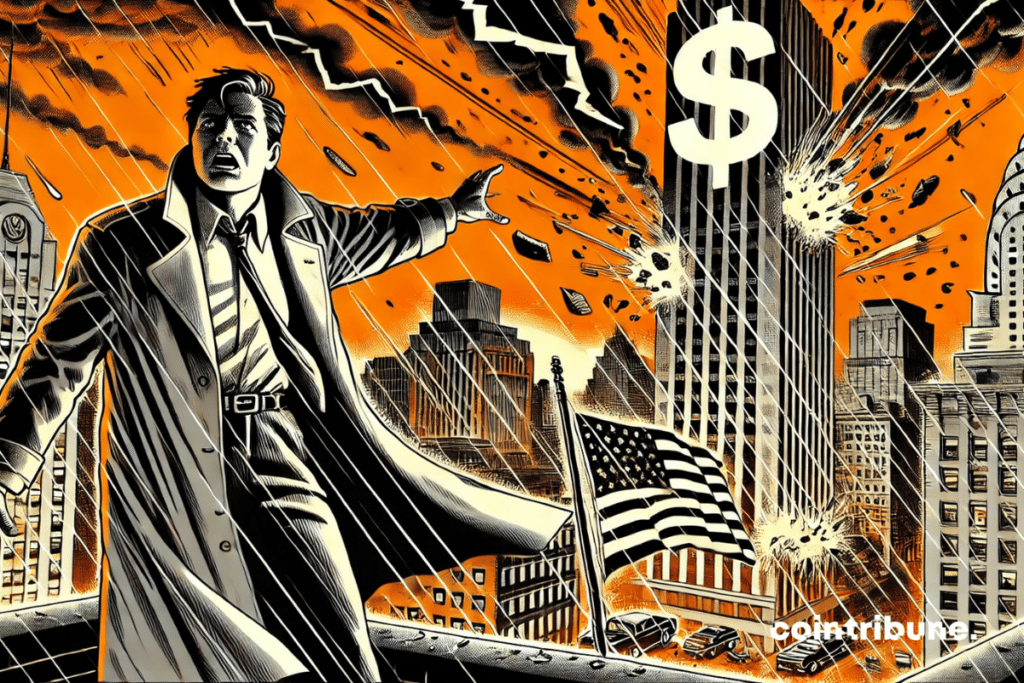Economist Peter Schiff Warns of Systemic Banking Collapse in Near Future
Prominent economist and gold advocate Peter Schiff has issued a stark warning about the stability of the global banking system. In recent statements, Schiff predicted a comprehensive failure of traditional banking institutions amid what he describes as an impending financial crisis. His analysis points to structural vulnerabilities in the current monetary system, exacerbated by inflationary pressures and unsustainable debt levels. Schiff’s comments come as regulators worldwide grapple with banking sector instability, with some analysts suggesting his warnings may signal broader systemic risks. The financial expert’s track record of predicting economic downturns lends weight to his latest prognosis, though mainstream economists remain divided on the severity of the coming challenges.

In Brief
- Peter Schiff warns of an imminent recession which, according to him, will surpass the Great Depression in its scale.
- He states that the American banking system is doomed to fail, unable to withstand the next economic shock.
- Recent bank failures are, according to him, the first signs of a structural chain collapse.
- He criticizes the Federal Reserve, considering it now unable to manage inflation and financial stability simultaneously.
A Recession More Severe Than the Great Depression According to Schiff
“What we are experiencing today is just a foretaste of the disaster to come,” says Peter Schiff. He emphasizes that the current situation is far more dangerous than that of the 1930s. According to him, the United States is sinking into an unprecedented recession that could trigger a total depression.
He believes that the expansionary monetary policy and chronic deficits of recent decades have made the American economic system unsustainable. Schiff does not fear just a temporary crisis but a deep structural collapse. “All banks will fail,” he predicts bluntly.
The economist points to several indicators of this fragility, based on lessons drawn from the 2023 bank failures :
- Poor risk management by financial institutions, notably prolonged exposure to assets sensitive to rate hikes ;
- The boomerang effect of low-rate policies, which encouraged risky investments that have become untenable ;
- Growing public loss of confidence in the traditional banking system, accelerated by delayed regulator responses ;
- Insufficient guarantees provided by authorities to stop a systemic banking panic.
For Schiff, these signals are not anomalies but the first jolts of a global collapse that neither central banks nor governments will be able to contain.
Monetary Policies Under Fire
Beyond warnings about banks’ solidity, Peter Schiff questions the current strategy of the Federal Reserve. He states that the institution is at an impasse :
The Fed is stuck. It can neither continue raising rates without causing massive failures, nor lower them without reigniting inflation.
This criticism targets directly the choices made by Jerome Powell, judged incapable of simultaneously curbing rising prices and tensions in the US financial markets.
Schiff argues that the current policy only worsens the situation. He believes rate hikes have weakened bank balance sheets while having only a limited effect on controlling inflation. The economist fears a total loss of confidence in fiat currency and a return to SAFE havens like gold, which he sees as the only viable solution.
He does not just denounce the current situation. According to him, the steering errors date back several economic cycles. He accuses central banks of artificially fueling the markets since the 2008 crisis.
While Schiff’s analysis is not unanimous, it nevertheless raises questions with serious consequences. So, will the US banking sector survive a systemic shock? Can American monetary policy still avoid a deflationary or inflationary spiral? At a time when markets are desperately searching for signs of stability, these radical positions crystallize fears but also invite reconsideration of the foundations of a financial system that seems to totter.
Maximize your Cointribune experience with our "Read to Earn" program! For every article you read, earn points and access exclusive rewards. Sign up now and start earning benefits.

